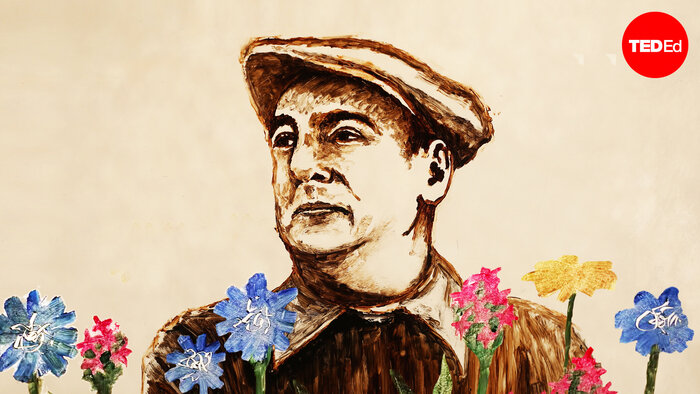The Chilean poet, diplomat, and politician Pablo Neruda, original name Neftalí Ricardo Reyes Basoalto was born on July 12, 1904. He was one of the greatest poets of the twentieth century in the Spanish language and was awarded the Nobel Prize for literature in 1971.
Neruda wrote his first poem at the age of 11, and at the age of 20, he became famous after the publication of Twenty Love Poems and a Desperate Song, which would become one of the most popular books of poetry in the world. By 1972, two million copies had been sold in Spanish alone; more than ten million copies are estimated to have been sold worldwide in translation.
“Tonight I Can Write
Tonight I can write the saddest lines.
Write, for example, “The night is starry
and the stars are blue and shiver in the distance.”
As a bohemian, diplomat, politician, communist, and anti-fascist fighter, Neruda lived an adventurous and colorful life. He had three wives, many lovers, and numerous affairs. He socialized with great artists like Pablo Picasso and Diego Rivera as well as with famous writers of his time. He had traveled around the world and collected masks and seashells, among other things, which are displayed in his houses converted into museums in Chile.
Throughout his lifetime, Neruda penned many poems extolling people’s revolutions around the world. He visited China three times and left behind several timeless poems expressing his admiration for the country. One of his poems is about China:
The land of China,
I wish to speak to you
only in the language of land,
only in the green language of paddy,
only in the crimson language of flame.
Neruda says that it was not he who found poetry but it was poetry that found him. He writes in Memorial de Isla Negra:
And it was at that age . . . poetry arrived
in search of me. I don’t know, I don’t know
where it came from, from winter or a river.
I don’t know how or when,
no, they were not voices, they were not
words, not silence,
but from a street, it called me,
from the branches of night,
abruptly from the others,
among raging fires
or returning alone,
there it was, without a face,
and it touched me.

